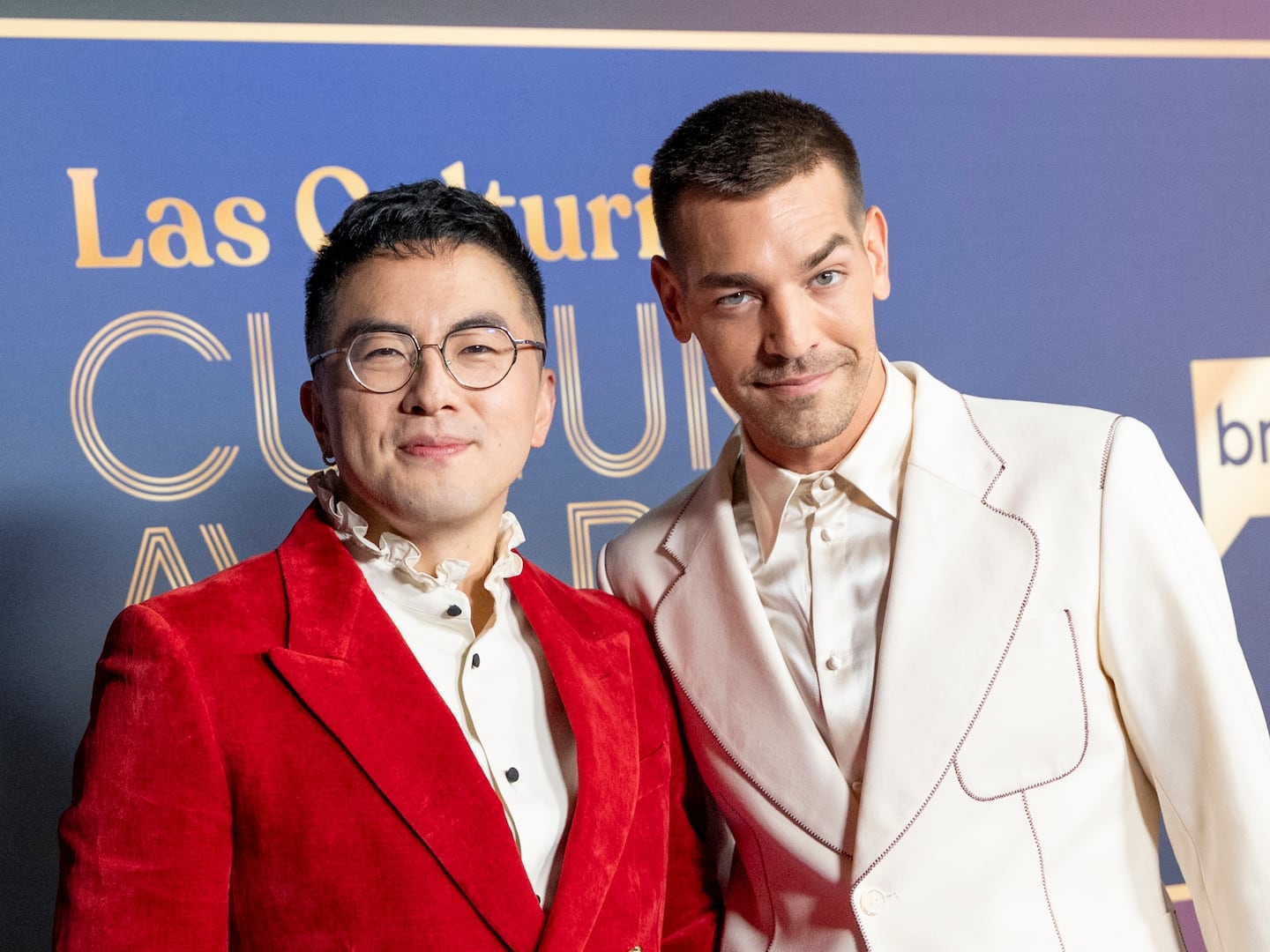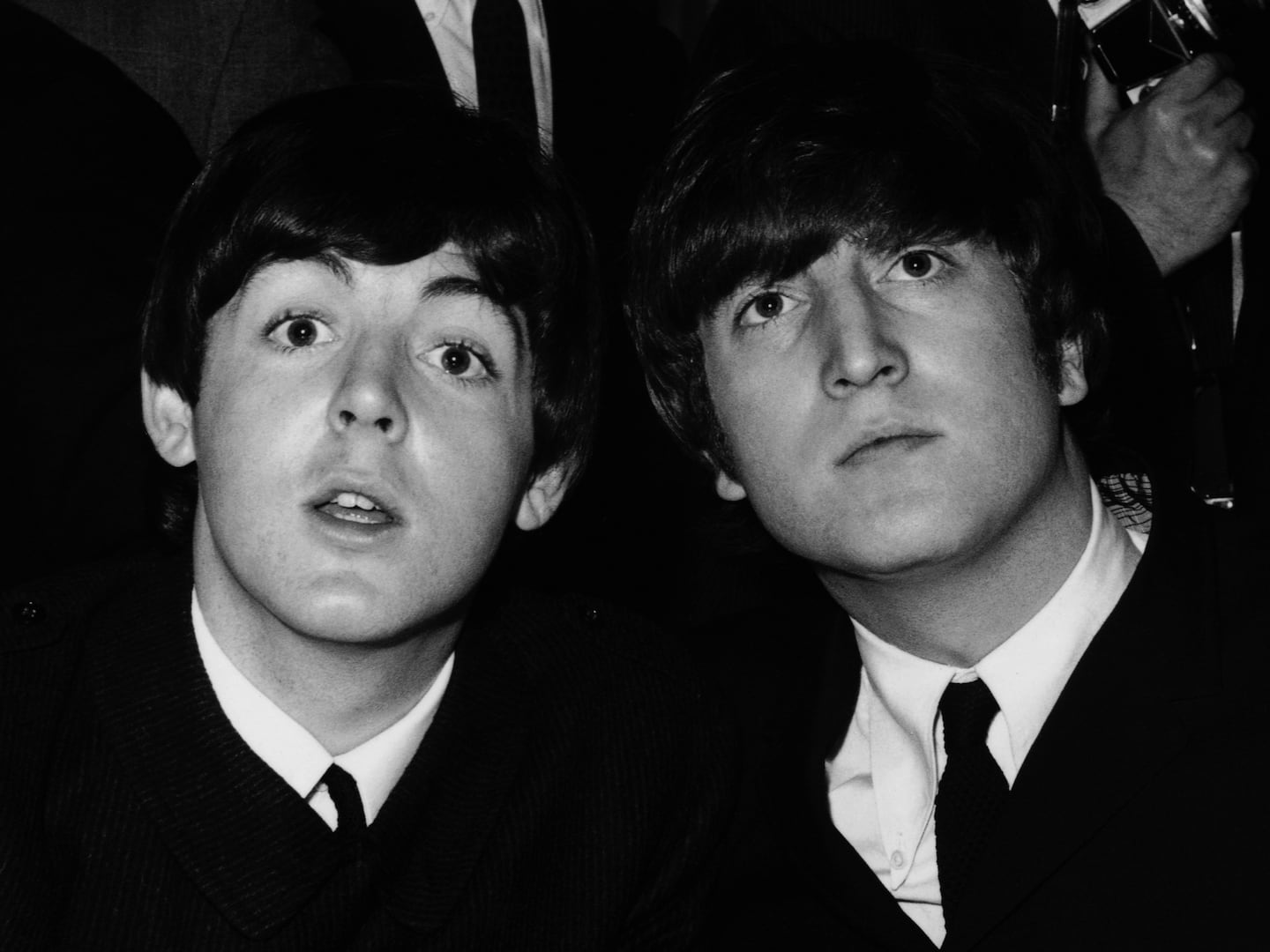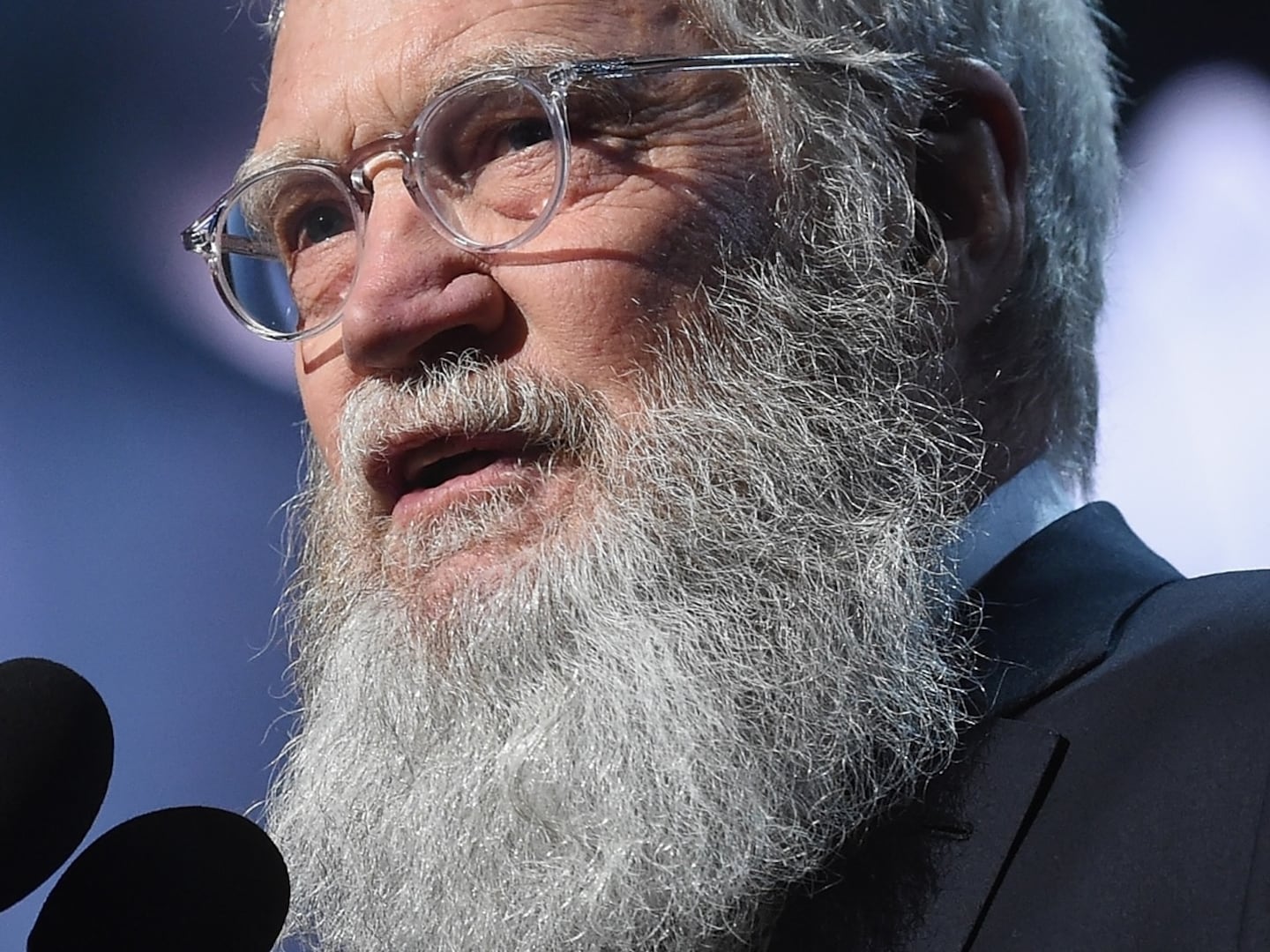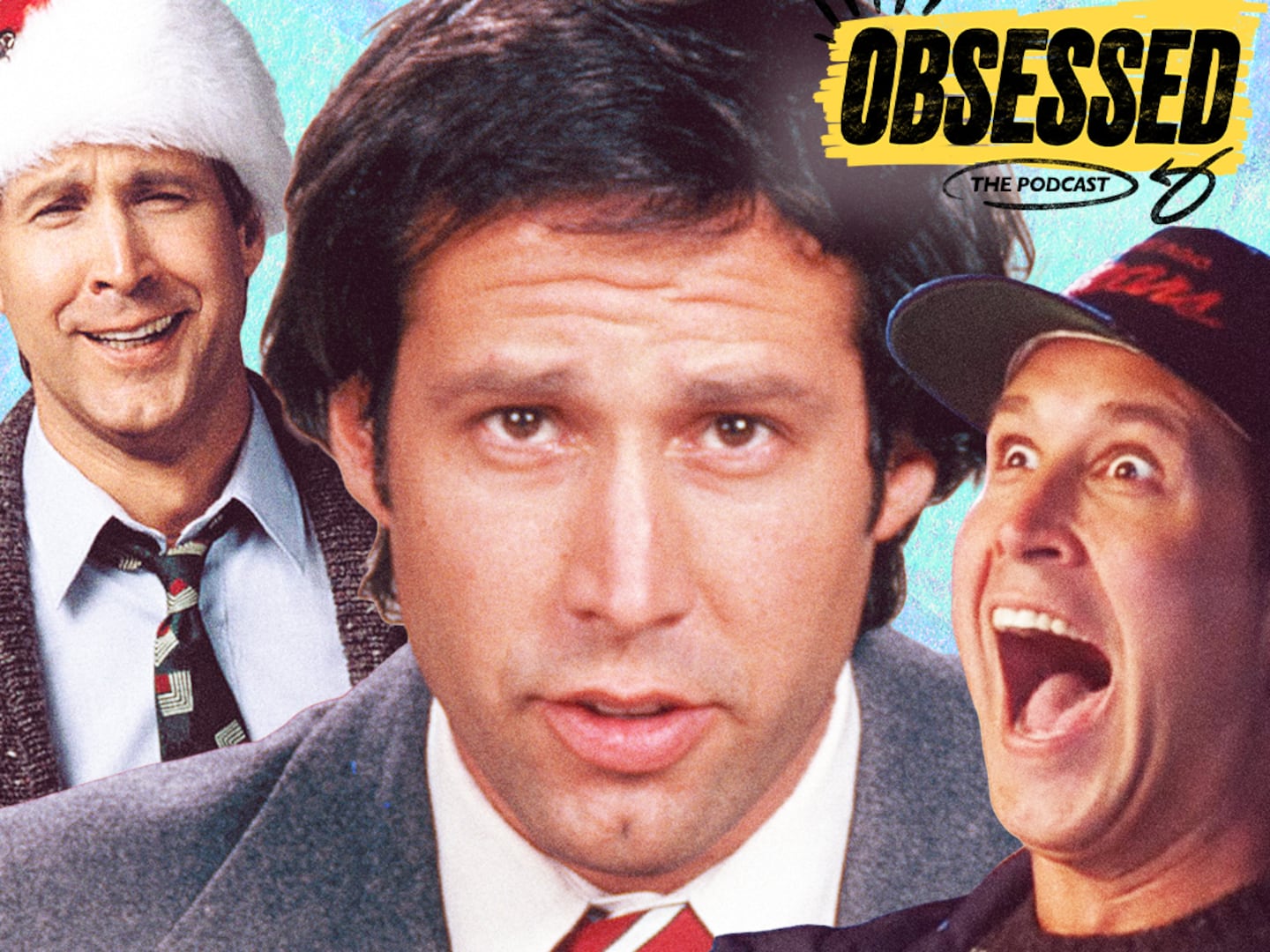If the Sundance Film Festival is any indication, satirical takes on science fiction and influencer culture will be big in 2023. Festival audiences have been clamoring to see stories about a future where babies are grown in pods and hedonistic influencers looking to increase their following by any means necessary. It would only make sense that, at some point, the two niches would collide.
Landscape with Invisible Hand, which premiered at the festival this week, is what happens when those two things crash at such a fast pace, the best parts of both are lost in the wreckage. The film takes place in the near future, where the world has been taken over by an alien species called the Vuvv. The Vuvv has brought life-saving technology to Earth, overhauling its economic prosperity and rendering most occupations obsolete. With most humans out of terrestrial jobs, people have been forced to find new ways to make money in a Vuvv-ruled world.
Enter Adam (Asante Blackk) and Chloe (Kylie Rogers), two teenagers who go to the same high school, which has had its entire curriculum change to coincide with humanity’s assimilation with the Vuvv. Chloe, a new student, has arrived after she was priced out of her home by the aliens; they wanted to park a floating ship of condominiums above it, annihilating its value. Sensing a spark between them, Adam invites Chloe and her family to live with him, much to the chagrin of his mother (Tiffany Haddish).
Adam and Chloe begin dating, but with both families trying to scrounge up cash in a limited job market, tensions are always at the surface. The strain at home nudges the couple to look for other ways to make money, which they decide to do by live-streaming their budding romance. But Adam and Chloe aren’t YouTubers trying to monetize their channels. Instead, they’re transmitting their dates directly to the Vuvv through “Courtship Broadcasts,” which allow the asexual and aromantic creatures to study human love. The aliens find this basic human need for companionship fascinating.
Landscape with Invisible Hand, which is based on the 2017 novel of the same name, initially seems like it’ll bring a unique twist to modern science fiction. The genre—beloved for being a prescient, allegorical storytelling device—has taken a minute to catch up to the current moment of social media saturation. But less than halfway into its already brief runtime, Landscape starts to fall apart at the seams. The film bungles its promise with a confused mixture of half-baked ideas that miss their mark entirely, all while it struggles to probe the concept of humor with a cold, alien touch.
Adam and Chloe’s romance starts off strong. Their pulses race, their palms sweat; they share “saturn sliders” and “cryptid crackers” in the cafeteria. But as they continue to live-stream their relationship to the Vuvv, Adam grows uncomfortable. He wants their privacy back, to have an intimate moment that’s only shared between the two of them and not millions of aliens, whose extraterrestrial views are translated directly into dollars in their bank accounts. But Chloe rebuffs his requests for a little alone time, telling him to “stop editorializing” their story.
As with just about every romance between high school sweethearts, things go awry. It’s here, too, where Landscape with Invisible Hand implodes the set of themes it has been building for its first 40 minutes. The dissolution of Adam and Chloe’s relationship squanders interesting questions about humanity’s inclination to commodify our most personal moments. We see Chloe lose her sense of self, catering to what her viewers want too early. While this sets the stage for the film’s muddled second half, it makes for an aggravating turn by showing all of the movie’s cards so early.
Adam and Chloe’s love begins to dissipate the more they broadcast themselves, and the Vuvv are not having it. They’re experts in human communication patterns and can tell that the couple is faking it. It’s not long after Chloe and Adam begin going through the motions that they’re slapped with a lawsuit by the Vuvv, suing the couple for all of the cash that alien race doled out for a front row seat to a real-life human romance.
Since their families have been barely scraping by, paying back the money is not an option. The Vuvv threaten to keep the litigation going for six future generations unless a trade can be agreed upon. So, Adam’s mother offers to give the Vuvv exactly what they want: a firsthand experience in a human relationship, allowing a member of their race to live in her house.
As if science fiction wasn’t confounding enough, it becomes even more difficult to grasp its symbolic structure when mangled by obtuse writing. Writer/director Cory Finley is clearly trying his best to juggle several ideas at once, but he hasn’t quite developed the dextrous hand needed for his first adapted screenplay. Blackk and Rogers do a nice job of elevating the material that they’re given, but even their promising emerging talents are not enough to lift this crash-landed UFO (Unappealing Film Object) off the ground.
Landscape leaves its initial examination of self-commercialization to rot, as the film spends its time bouncing between hot-button ideas. Class warfare becomes tangled up in minor explorations of race and gender politics, shuffling its most compelling concept behind theoretical tentpoles that exist for no reason other than to make the film seem smarter than it is. What began as a scintillating satire devolves into a tonally inconsistent blob.
By its final few minutes, the film makes a hail mary pivot back to its initial themes about sacrificing integrity and privacy for a paycheck. But its ending is a thorough disappointment. Landscape with Invisible Hand is five minutes too long, spoon-feeding us all of the answers to questions it forgot to ask. It has all the subtlety of a Vuvv rubbing its squeaky tentacles together.
A core element of thought-provoking sci-fi is maintaining an element of ambiguity. That vagueness is what makes us consider what the stories are trying to teach us. By the time Landscape ends, there’s no room for rumination on its themes. It’s cut and dry. And yet, you’ll walk away feeling like you spent 98 minutes lost in space, waiting for this movie to crash land somewhere and make a point.






